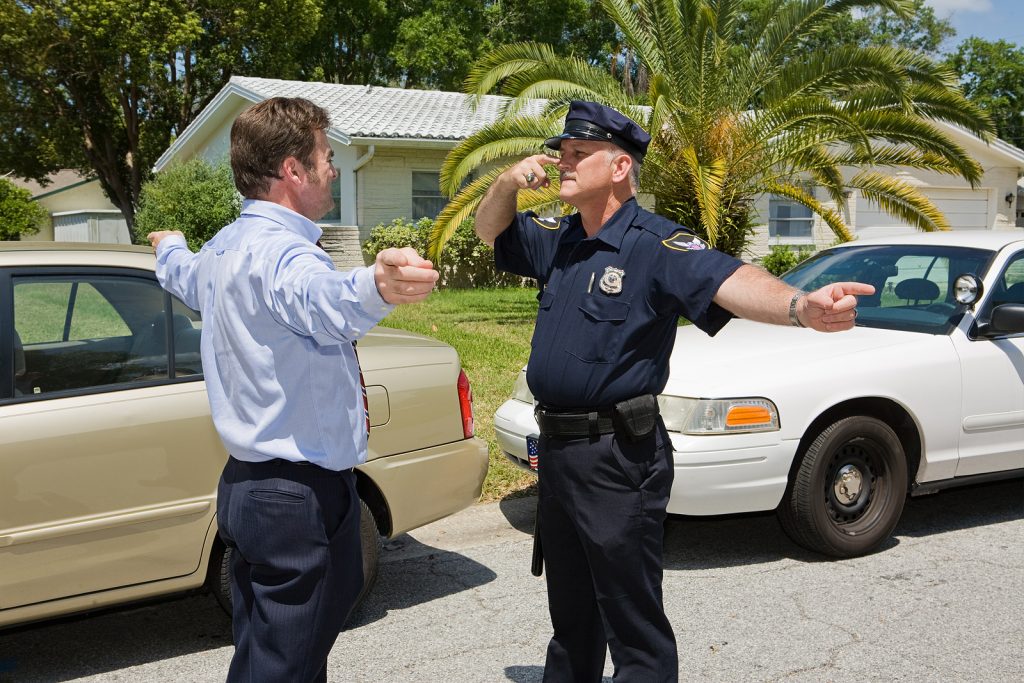A DUI, OVI, DWI, and OMVI all refer to operating a vehicle while impaired and under the influence of drugs, alcohol, or both. If caught drinking and driving with a blood alcohol content (BAC) level of 0.08 percent, you can get arrested and convicted of a DUI in Ohio.
One of the most influential drivers in any DUI conviction is your BAC and whether it is high or low. This directly impacts your sentence as one example and whether you serve more or less jail time.
Ohio law recognizes OVIs, DUIs, DWIs, and OMVIs. If you have been charged with a DUI offense, contact our firm so we can start working on a defense for your case.
What Should I Do at an OVI Traffic Stop?
If a police officer pulls you over at an operating a vehicle impaired (OVI) stop, it’s important to avoid simple mistakes, stay calm, and remember your legal rights.
First and foremost, be respectful when communicating with a police officer, and don’t volunteer more information than you have to. You don’t want to fabricate any information but being too forthcoming can hurt you later. An example of this might include saying something like, “I’ve only had a few beers.”
A common misconception is that roadside tests are required. You can legally decline a field sobriety test, though you must get out of your vehicle if the officer asks. While doing so may result in immediate license suspension, a lack of chemical test results could benefit your case.
With a First Drinking and Driving Offense, What Can I Expect?
If you have no prior DUI convictions on your record, this is considered a first DUI offense. If your chemical test results show a BAC of .08 to .17, you could be sentenced to three days in jail or be required to enroll in a Driver Intervention Program.
With a first DUI conviction, you could face fines up to $1,075, up to six months in jail, and a license suspension of up to three years.
If you have been arrested for a first DUI offense, protect your future, and contact our experienced DUI attorneys for a consultation.
What Kind of Charge is a DUI or OVI?
The more DUI offenses you have on your record, the greater the penalties. A first and second DUI offense is typically a misdemeanor charge and results in fines, jail time, and license suspension.
The turning point for a DUI charge is when it transitions from a misdemeanor to a felony—a serious offense with criminal penalties. A felony is likely if you have any prior crimes that occurred within a short period or mitigating circumstances as part of your case, including any injured victims, underage passengers, and other similar influencers.
Our law firm will protect your rights and represent you at every stage of your DUI case. Contact us today at 513-548-5544 and book a free consultation to discuss your case.

 CALL 513-579-9500 NOW
CALL 513-579-9500 NOW
